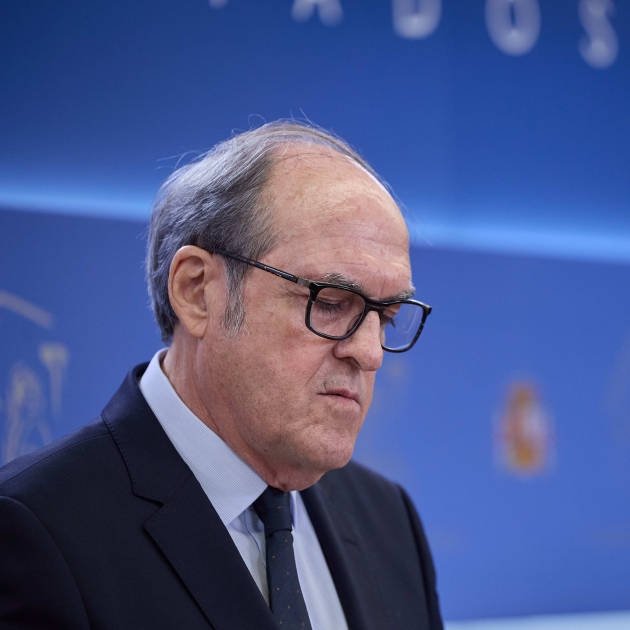Among Spaniards over the age of 18, about six people in every thousand, that is, 0.6% of the population, are estimated to have suffered sexual abuse from priests or other members of the Catholic church. This is the conclusion of the report presented this Friday by Spain's Defensor del Pueblo, or ombudsman, to the Congress of Deputies. The work also calculates that 1.13% of the population - more than one in every hundred - have suffered abuse in religious settings. This latter statistic includes sexual assaults from people who may be secular, but when the offences were perpetrated in church-related areas, such as, for example, teachers in Catholic schools. Taking into account the percentages given by the ombudsman and official population data, this means that the absolute numbers are about 236,000 people in the first case and a staggering 445,000 people in the second.
The data comes from a GAD3 survey commissioned by the ombudsman, Ángel Gabilondo, who was tasked by the Spanish lower house with preparing a report on sexual abuse committed in the Spanish state by the Catholic church. The survey is based on a significant methodological and numerical sample of the general Spanish population (8,013 people), and uses anonymized data collected by the Victim Support Unit. The work asserts, among other conclusions, that 11.7% of the sample claim to have suffered sexual abuse when they were under the age of 18; that is, an extrapolated figure of 4.6 million people across Spain. Of these, 3.36% state that this abuse took place in the family sphere, that is to say, 1.3 million people.
On the other hand, the survey shows that 72% of respondents consider that child sexual abuse is a "very serious" social problem while 24.4% rated it as "quite serious". However, the majority of respondents feel that adequate measures are not being taken to reduce the problem. In a press conference at the Congress of Deputies, Gabilondo explained that a total of 487 victims, 87% of them men, have reported sexual abuse in the Church to the victim care unit of the commission created by the institution.
The report states that the response of the Catholic church, at least officially, was characterized "for a long time" by "denial or minimization of the problem". In this regard, he says that some victims have had to face not only "denial and concealment", but even "pressure" from representatives of the religious institution, through which "they were blamed for the abuses suffered" .
However, the survey assesses that good practices have also been detected in the Church and recognizes "the institutional courage of those who have chosen to assume the responsibility that corresponds to the institution" for the abuse that took place. On the other hand, it is also critical that public authorities lacked adequate procedures to prevent, detect and react to actions of sexual abuse of minors in the Catholic church schools in the past.
The report proposes twenty specific recommendations. Among them is the holding of a public act of recognition and symbolic reparation to the victims for the prolonged period of neglect and inactivity, in particular between 1970 and 2020, as well as the creation of a state fund for the payment of compensation to the victims.
Spanish Episcopal Conference calls an extraordinary assembly
As well, the Spanish Episcopal Conference has called a extraordinary assembly for next Monday, October 30th, to analyze the ombudsman's report. It will be a meeting in which the bishops can attend in person or online. The meeting will focus on sexual abuse perpetrated by members of the Church, and will have only two items on the agenda. The first question to be discussed will be the study and assessment of the report presented by the ombudsman this Friday in Congress. Secondly, the request of the Cremades & Calvo Sotelo lawyers to extend the deadline for the delivery of the audit carried out on behalf of the Episcopal Conference will be studied.
